Driven into the Siberian taiga by Stalin,
she is the sole survivor of the Lykov family who cut themselves off from
civilisation in 1936.
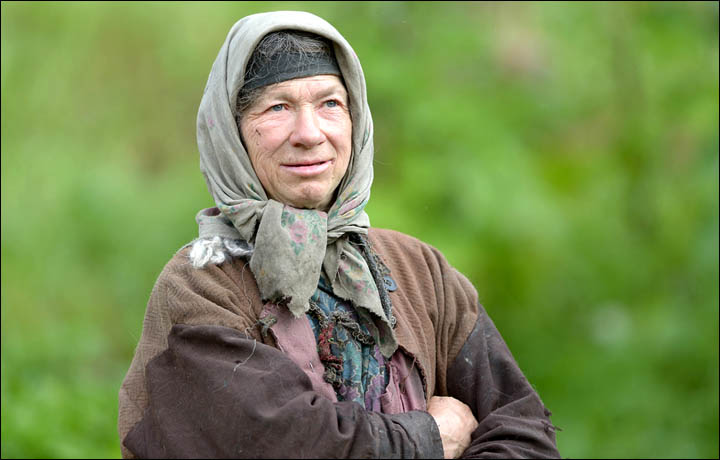
Elsewhere in Russia, she might be sitting back and taking it easy as a
pensioner but in her remote home, hundreds of kilometres from the
nearest town, she works daily, pitting her wits against the extreme of
cold and hot that mark the Siberian climate. Picture: Igor Shpilenok
Agafya, 69, still makes fire using flint, refusing an offer of
matches from famous Russian photographer and naturalist Igor Shpilenok,
who visited her recently.Elsewhere in Russia, she might be sitting back and taking it easy as a pensioner but in her remote home, hundreds of kilometres from the nearest town, she works daily, pitting her wits against the extreme of cold and hot that mark the Siberian climate.
As Igor's pictures show, she looks immensely content with her life.
Today Agafya - who lives according to her Old Believer religious principles - receives visitors several times a year, helping her with such tasks as providing firewood for the long winter. In the past, her family was lost to the world for four decades before their remote self-made hamlet was spotted by Soviet geologists flying over the area in 1978.
When Igor, 53, arrived on a regular visit by nature reserve inspectors Sergei Khlebnikov and Alexander Oskin, they found Agafya at prayer, and fasting. It was 2 August, the day the church honours the prophet Elijah.
'She forbade us to work on that day,' he said. 'She did not eat anything of the food we brought with, but sat with us and we had a good talk. She took the gifts - rubber boots, socks, dried and fresh fruits. She inspected everything meticulously, to make sure there was no barcode.'
She sees the barcode as the work of the devil, and has nothing to do with them. 'She found the barcode on the matches we gave her and returned them. It anyway turns out that until now she makes fire using the ancient method of tinder and flint'.
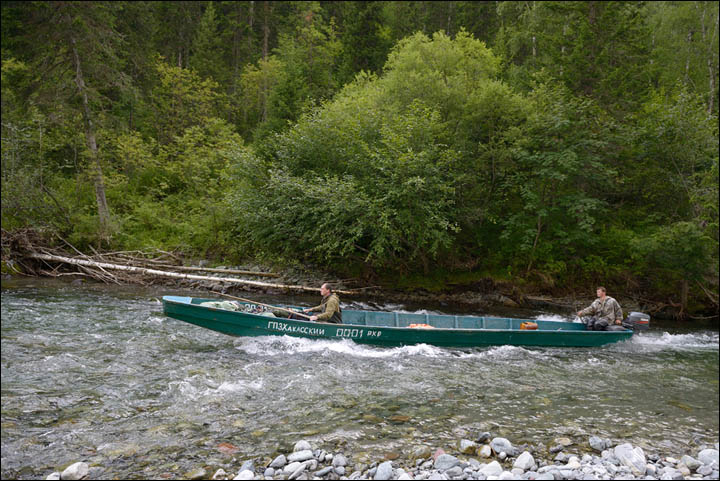

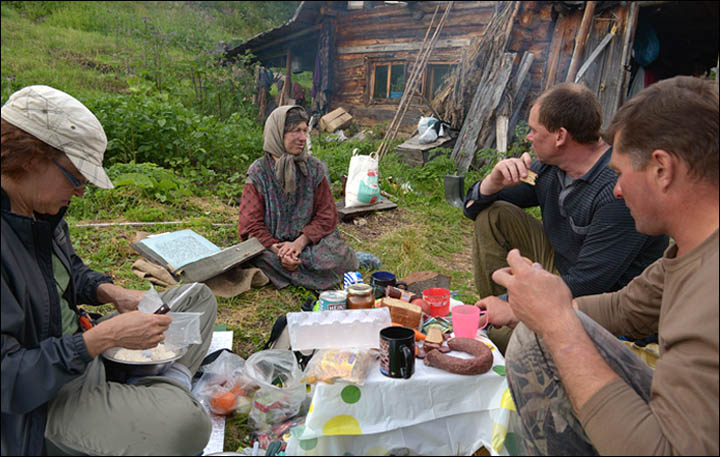
To reach Agafya, they faced a tortuous two day trip, firstly by
hovercraft along rivers, then a small boat and finally a long trek on
foot. Pictures: Igor Shpilenok
The visitors also found that Agafya was living in her summer
quarters, not her sturdy wooden house she occupies in winter, built by
her late father.Instead, she occupies a hut made of sticks and a token of modernity - a plastic sheet - to keep out the rain.
'In summer, Agafya does not live in her house, but in this hut among her vegetable beds, sleeping on matting laid on the ground, covered with a blanket,' said Igor.
'Almost all the next day, we were engaged in logging and weeding her vegetable gardens'.
To reach her, they faced a tortuous two day trip, firstly by hovercraft along rivers, then a small boat and finally a long trek on foot.
When they left, Agafya gave the men a sack of potatoes as a gift. Feeling her need was greater than theirs, they declined, but she was insistent.
'We had to take a few potatoes,' he said.
She also gave Sergei a hand-made belt. They had spent just 20 hours with this remarkable Siberian woman, before leaving her once again to the solitude into which she was born.
'This short time provided fodder for many reflections on the distant and recent past, the meaning of life, the power of the human spirit, faith,' Igor wrote in his blog.
'No, I do not feel that Agafia Karpovna's life is a dead end in the taiga'.
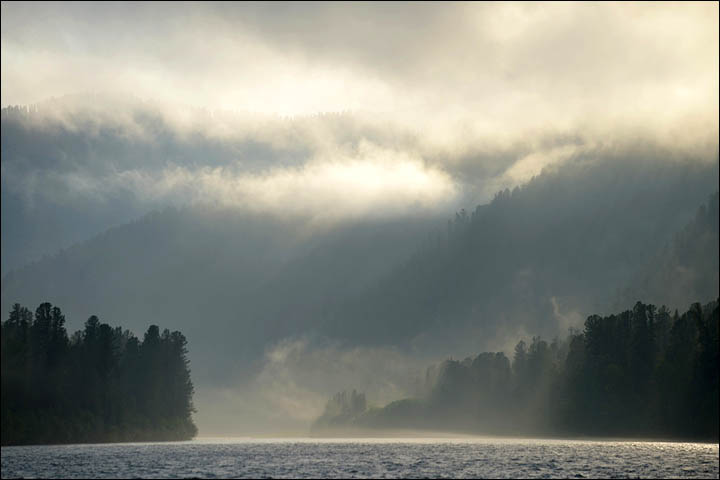
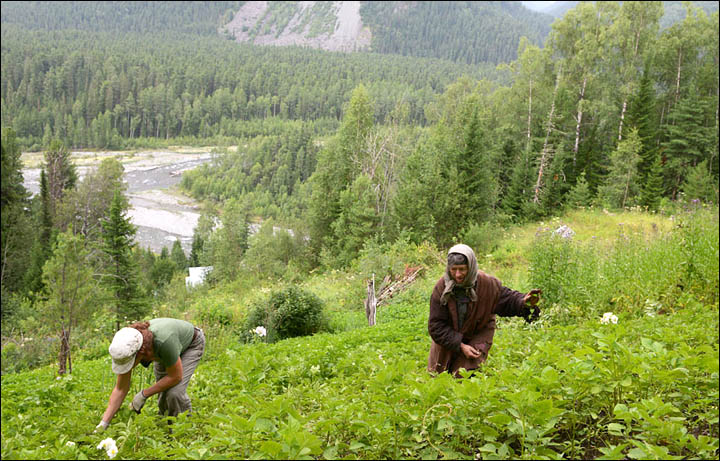
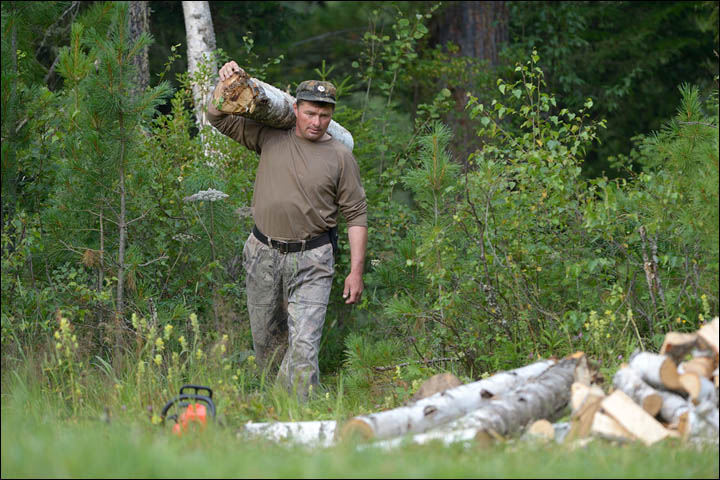
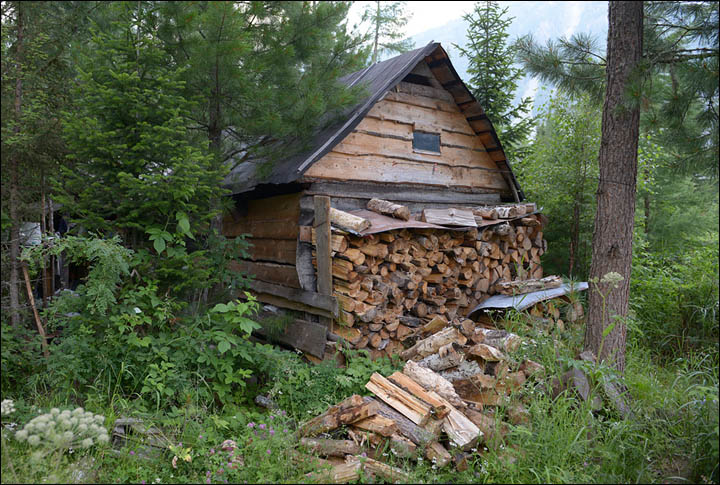
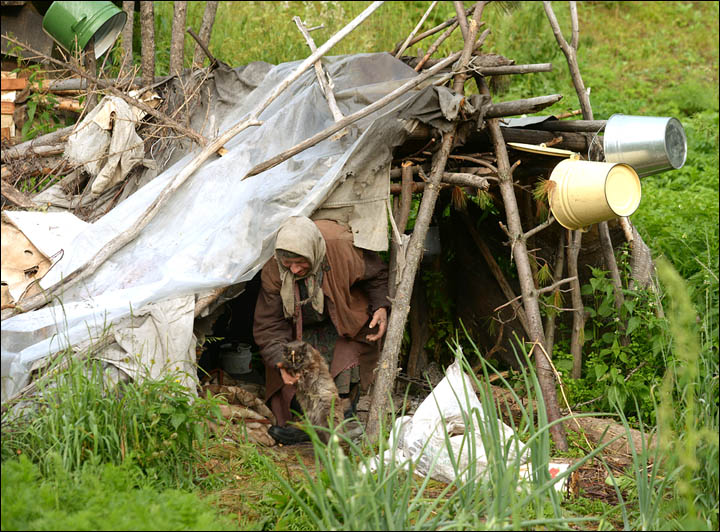
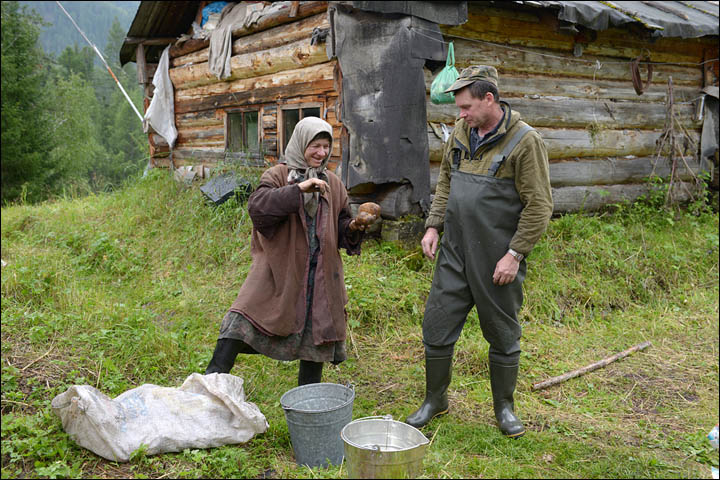

To reach Agafya, they faced a tortuous two day trip, firstly by
hovercraft along rivers, then a small boat and finally a long trek on
foot. Pictures: Igor Shpilenok
Agafya's patronymic refers to her father Karp Lykov, a devout Old
Believer who took his family into the wilderness to escape the
persecution they felt under Stalin. She was born in this remote
wilderness in 1944 but it was not until 1978, some 42 years after they
disappeared, that their primitive huts were spotted from the air in the
Sayan Mountains by a party of Soviet geologists who then came to make
contact with them.When they were discovered, the family comprised Karp Iosifovich (the head of the family), his sons Savin, 45, and Dmitry, 36, and his daughters Natalya, 42, and Agafya, then 34. The children's mother Akulina had died in 1961.
The three other children died in 1981 and Karp in 1988 since when Agafya has lived alone at the family's smallholding in what is now Khakassky nature reserve. Her only companions are two nanny goats, a male goat, eight cats, a rooster, hens, and a dog called Taiga.
Igor visited Agafya with his American wife Laura Williams; as a husband and wife photographer-writer team, they work to promote Russia's protected areas.
They live in a remote village in the buffer zone of the Bryansky Les Zapovednik nature reserve in Western Russia. Igor was formerly director of this reserve while Laura is Senior Advisor for the World Wide Fund for Nature (WWF) in Russia and a freelance nature writer.

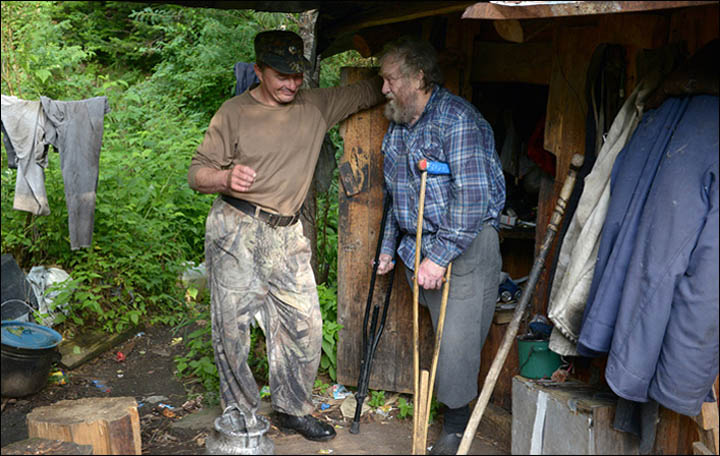
Igor Sphilenok and, below, a former geologist Yerofei Sedov (right). Pictures: Igor Shpilenok
In 2006, Igor won first prize in the BBC Wildlife Photographer of the
Year Competition. 'I wish to convey the beauty of wild nature in
Russia's protected areas to people around the world and evoke in them
the desire to conserve those areas,' he says.On the way to see Agafya on the Abakan River, they met Yerofei Sedov, a former geologist, drilling foreman, who once took an active part in the life of the Lykov family. 'Having lost his leg 16 years ago, he settled near the Lykovs,' said Igor.
By Anna Liesowska
POSTED BY : VIPUL LOUL
EDITED BY : ASHOK KOUL

No comments:
Post a Comment